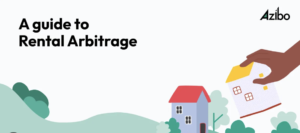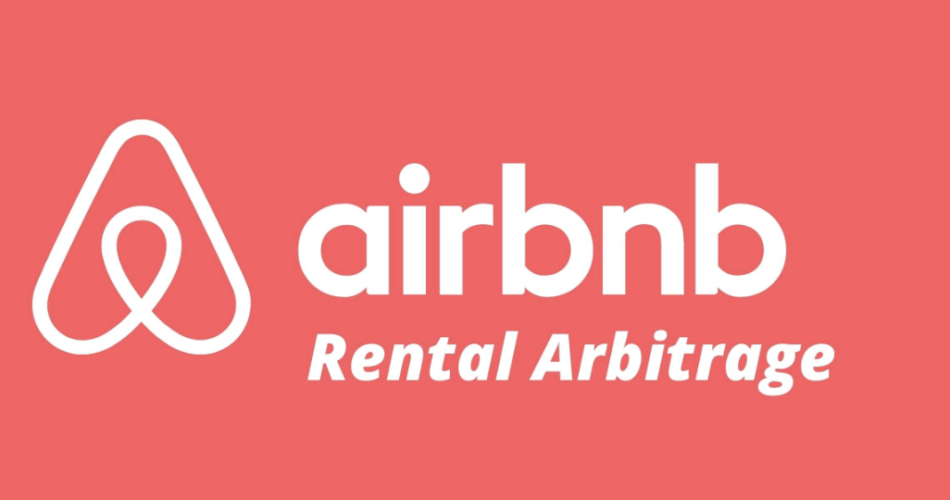Contents
- 1 Understanding Airbnb Arbitrage
- 2 How Airbnb Arbitrage Can Boost Your Profits
- 3 The Pros and Cons of Airbnb Arbitrage
- 4 Finding the Right Properties for Airbnb Arbitrage
- 5 Setting Up Your Airbnb Listing for Maximum Profitability
- 6 Pricing Strategies for Successful Airbnb Arbitrage
- 7 Managing Multiple Airbnb Properties Efficiently
- 8 Dealing with Challenges and Risks in Airbnb Arbitrage
- 9 Legal Considerations in Airbnb Arbitrage
- 10 Conclusion: Taking Your Airbnb Arbitrage Business to the Next Level
Understanding Airbnb Arbitrage
Airbnb arbitrage is a powerful strategy that allows savvy real estate investors to capitalize on the growing short-term rental market. By leveraging the platform’s popularity, we can generate higher returns on our properties compared to traditional long-term rentals. In essence, Airbnb arbitrage involves renting properties at a lower cost, then listing them on Airbnb for a higher nightly rate, pocketing the difference as profit.
This approach has gained significant traction in recent years, as more people seek unique, personalized travel experiences. As an experienced real estate investor, I have harnessed the power of Airbnb arbitrage to boost my profits and diversify my portfolio. In this comprehensive guide, I’ll share the strategies and insights I’ve gained to help you master the art of Airbnb arbitrage and take your rental business to new heights.

Airbnb Arbitrage
How Airbnb Arbitrage Can Boost Your Profits
Airbnb arbitrage offers several key advantages that can significantly increase your profitability:
- Higher Rental Rates: By leveraging Airbnb’s platform and its demand for short-term rentals, you can charge higher nightly rates than traditional long-term leases. This can translate to substantially higher monthly and annual revenues.
- Increased Occupancy Rates: Airbnb’s global reach and the growing popularity of short-term rentals often result in higher occupancy rates compared to traditional long-term rentals. This means your properties are generating income for more days of the year.
- Flexibility and Control: With Airbnb arbitrage, you maintain greater control over your properties and can adjust pricing, availability, and management strategies to optimize profitability.
- Diversification: Incorporating Airbnb arbitrage into your real estate investment portfolio can provide a valuable diversification, reducing your overall risk and exposure to market fluctuations.

Airbnb Arbitrage
The Pros and Cons of Airbnb Arbitrage
As with any investment strategy, Airbnb arbitrage comes with its own set of advantages and challenges. Understanding these factors is crucial to making informed decisions and managing your risks effectively.
Pros:
- Higher Earning Potential: The ability to charge higher nightly rates on Airbnb can lead to significantly higher returns compared to traditional long-term rentals.
- Increased Occupancy Rates: Airbnb’s global reach and the growing demand for unique short-term rentals can result in higher occupancy rates, translating to more consistent income.
- Flexibility and Control: Airbnb arbitrage allows you to maintain greater control over your properties, enabling you to adjust pricing, availability, and management strategies as needed.
- Diversification: Incorporating Airbnb arbitrage into your real estate investment portfolio can provide valuable diversification, reducing your overall risk.
Cons:
- Increased Workload: Managing multiple Airbnb properties can be more time-consuming and labor-intensive than traditional long-term rentals, requiring attention to guest communication, cleaning, and maintenance.
- Regulatory Challenges: Some cities and municipalities have implemented regulations or restrictions on short-term rentals, which can impact your ability to operate effectively.
- Potential for Damage and Wear-and-Tear: Increased guest turnover in short-term rentals can lead to a higher risk of property damage and accelerated wear-and-tear, necessitating more frequent maintenance and repairs.
- Seasonality and Market Fluctuations: Airbnb demand and occupancy rates can be subject to seasonal variations and market conditions, which can affect your profitability.
Understanding these pros and cons will help you make informed decisions and develop strategies to mitigate the risks associated with Airbnb arbitrage.
Finding the Right Properties for Airbnb Arbitrage
Selecting the right properties is crucial to the success of your Airbnb arbitrage strategy. When evaluating potential properties, consider the following factors:
- Location: Focus on areas with high demand for short-term rentals, such as popular tourist destinations, urban centers, or areas near major events or attractions.
- Property Type: Certain property types, such as apartments, condos, or unique vacation homes, tend to be more appealing to Airbnb guests and can command higher nightly rates.
- Size and Amenities: Larger properties with desirable amenities, such as pools, hot tubs, or outdoor living spaces, can attract higher-paying guests and increase your earning potential.
- Rental History and Occupancy Rates: Analyze the historical performance of similar properties in the area to gauge the potential occupancy rates and nightly rates you can achieve.
- Acquisition Costs: Carefully evaluate the purchase price, renovation costs, and ongoing expenses to ensure the property aligns with your investment goals and profitability targets.
By conducting thorough market research and due diligence, you can identify the most promising properties for your Airbnb arbitrage strategy, maximizing your chances of success.
Setting Up Your Airbnb Listing for Maximum Profitability
Once you’ve secured the right properties, it’s time to optimize your Airbnb listings to attract the right guests and maximize your profitability. Here are some key strategies to consider:
- Compelling Listing: Craft a visually appealing and informative listing that highlights the unique features and amenities of your property. Use high-quality photos, detailed descriptions, and honest reviews to showcase the value you offer.
- Pricing Strategies: Leverage data-driven pricing strategies to ensure your nightly rates are competitive yet profitable. Consider factors such as seasonality, local market conditions, and guest demand.
- Efficient Property Management: Implement robust systems and processes for managing guest communication, cleaning, maintenance, and any necessary repairs to ensure a seamless experience for your guests.
- Branding and Reputation: Cultivate a strong brand identity and positive reputation by providing exceptional guest experiences, responding promptly to inquiries, and encouraging positive reviews.
- Automation and Optimization: Leverage Airbnb’s tools and third-party software to automate various aspects of your operations, such as dynamic pricing, guest communication, and booking management, to maximize efficiency and profitability.
By meticulously setting up your Airbnb listings and optimizing your property management strategies, you can position your Airbnb arbitrage business for long-term success.
Pricing Strategies for Successful Airbnb Arbitrage
Effective pricing is a critical component of successful Airbnb arbitrage. To ensure you’re generating maximum profits, consider the following pricing strategies:
- Dynamic Pricing: Utilize Airbnb’s dynamic pricing algorithms or third-party pricing tools to automatically adjust your nightly rates based on factors such as demand, seasonality, and local market conditions.
- Tiered Pricing: Offer different pricing tiers for your property, catering to a range of guest budgets and preferences. This can help you attract a broader audience and maximize revenue.
- Seasonal Pricing: Adjust your pricing to reflect the fluctuations in demand throughout the year. Charge higher rates during peak seasons and offer discounts during shoulder or off-peak seasons.
- Minimum Stay Requirements: Implement minimum stay requirements, particularly during high-demand periods, to encourage longer bookings and higher overall revenue.
- Promotional Pricing: Strategically offer discounts or promotions to attract new guests, incentivize repeat bookings, or fill gaps in your calendar.
By adopting a data-driven, multi-faceted pricing approach, you can optimize your Airbnb arbitrage profits and stay ahead of the competition.
Managing Multiple Airbnb Properties Efficiently
As your Airbnb arbitrage business grows, effectively managing multiple properties becomes crucial. Here are some strategies to streamline your operations and maintain profitability:
- Automation and Outsourcing: Leverage technology and third-party services to automate tasks such as guest communication, cleaning, maintenance, and accounting. This can free up your time to focus on strategic decision-making.
- Standardization and Systemization: Develop consistent processes and procedures for managing your properties, from guest check-in to maintenance and cleaning. This ensures a seamless, high-quality experience for your guests.
- Team Building and Delegation: Assemble a team of skilled professionals, such as property managers, cleaners, and maintenance technicians, to handle the day-to-day operations of your Airbnb properties.
- Performance Monitoring and Analytics: Regularly monitor key performance metrics, such as occupancy rates, average nightly rates, and revenue, to identify areas for improvement and optimize your strategies.
- Continuous Learning and Adaptation: Stay informed about industry trends, regulatory changes, and best practices in Airbnb arbitrage. Continuously adapt your strategies to stay ahead of the competition and capitalize on new opportunities.
By implementing these strategies, you can efficiently manage a portfolio of Airbnb properties, freeing up your time and resources to focus on expanding your business and maximizing your profits.
Dealing with Challenges and Risks in Airbnb Arbitrage
While Airbnb arbitrage can be a highly rewarding investment strategy, it also comes with its fair share of challenges and risks. Addressing these issues proactively is crucial to the long-term success of your Airbnb arbitrage business.
- Regulatory Compliance: Stay informed about the local regulations and laws governing short-term rentals in the areas where your properties are located. Ensure you’re in full compliance to avoid penalties or legal issues.
- Guest Vetting and Management: Implement thorough guest screening processes and clear house rules to mitigate the risks of property damage, noise complaints, or other disruptive guest behavior.
- Maintenance and Wear-and-Tear: Allocate sufficient resources for regular maintenance, cleaning, and repairs to address the increased wear-and-tear associated with high guest turnover.
- Insurance and Risk Management: Secure comprehensive insurance coverage, including property, liability, and landlord insurance, to protect your investments and mitigate potential risks.
- Market Fluctuations and Seasonality: Monitor market trends and seasonal variations to adapt your pricing and marketing strategies accordingly, ensuring your Airbnb arbitrage business remains profitable throughout the year.
By proactively addressing these challenges and risks, you can minimize the potential pitfalls and ensure the long-term sustainability of your Airbnb arbitrage investments.
Legal Considerations in Airbnb Arbitrage
Navigating the legal landscape of Airbnb arbitrage is crucial to the success and longevity of your rental business. Here are some key legal considerations to keep in mind:
- Local Regulations and Zoning Laws: Research and comply with the specific regulations and zoning laws governing short-term rentals in the areas where your properties are located. This may include obtaining the necessary permits, licenses, or registrations.
- Tax Obligations: Understand your tax responsibilities, including income taxes, occupancy taxes, and any other applicable taxes related to your Airbnb rental income. Ensure you are properly reporting and remitting these taxes to the relevant authorities.
- Insurance and Liability: Secure comprehensive insurance coverage, including property, liability, and landlord insurance, to protect your investments and mitigate potential legal risks.
- Guest Contracts and Policies: Develop clear and comprehensive guest contracts, policies, and house rules to establish expectations, address liability concerns, and protect your interests.
- Landlord-Tenant Regulations: If you are renting properties for your Airbnb arbitrage business, familiarize yourself with the applicable landlord-tenant laws and regulations to ensure compliance and avoid potential legal disputes.
By staying informed and proactively addressing the legal aspects of Airbnb arbitrage, you can minimize your exposure to legal risks and operate your rental business with confidence and peace of mind.
Conclusion: Taking Your Airbnb Arbitrage Business to the Next Level
As you’ve learned throughout this comprehensive guide, Airbnb arbitrage presents a tremendous opportunity to boost your real estate investment profits and diversify your portfolio. By understanding the strategies, challenges, and legal considerations, you can position your Airbnb arbitrage business for long-term success.
Ready to take your Airbnb arbitrage business to new heights? Contact me today to learn more about my proven strategies and how I can help you maximize your profits. Together, we’ll develop a customized plan to unlock the full potential of Airbnb arbitrage and propel your real estate investments forward.
